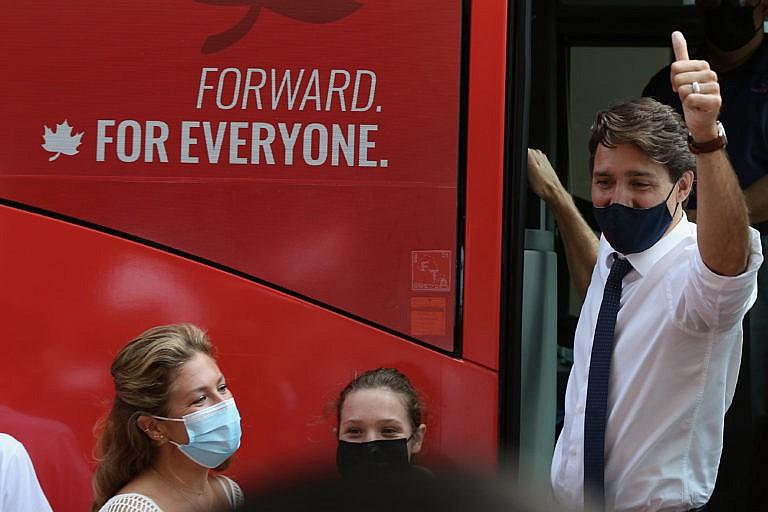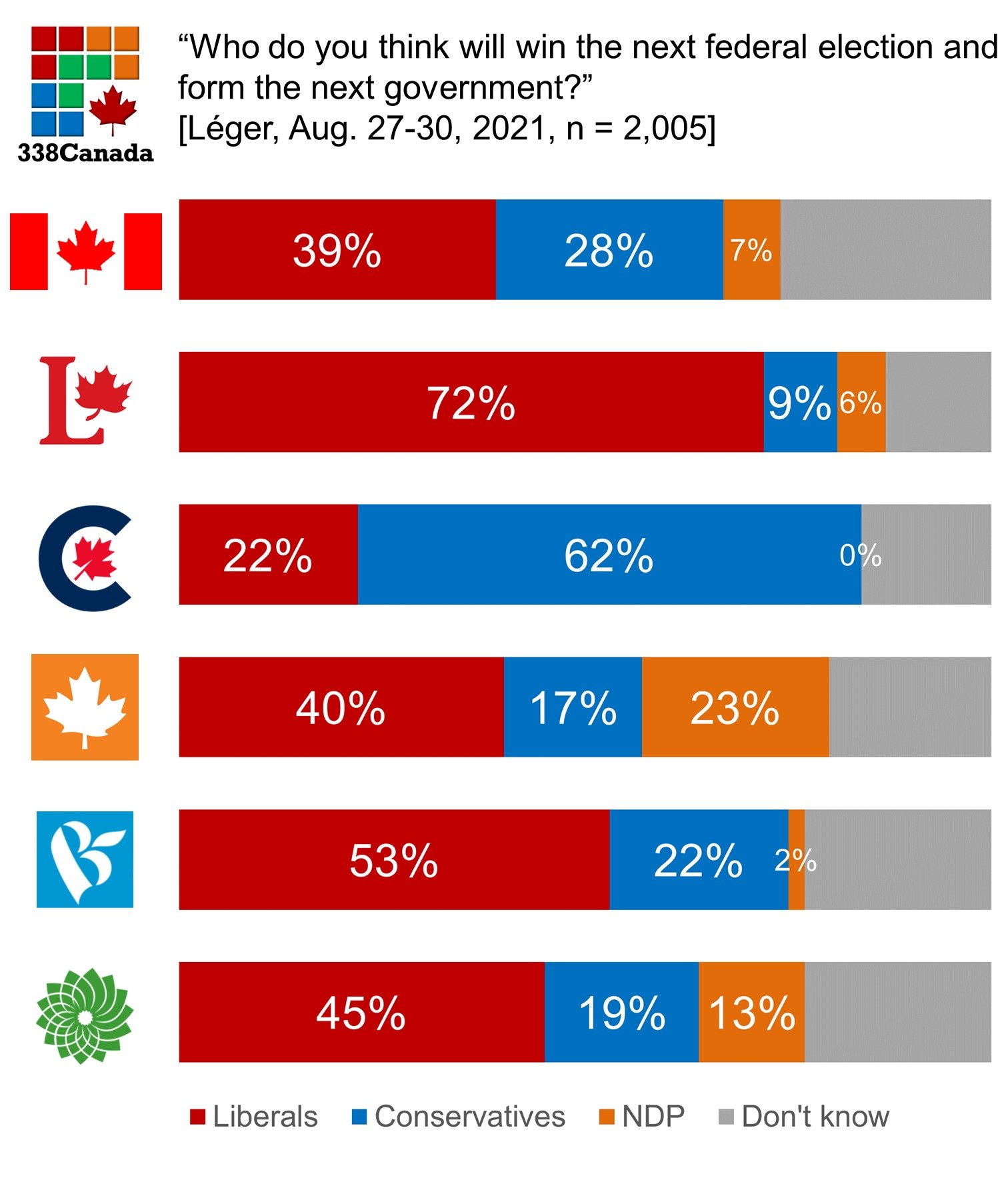Polls show O’Toole is the favourite. Voters don’t seem convinced.
Philippe J. Fournier: The Conservatives are ahead, say the polls. But they also tell us that many voters believe Justin Trudeau will remain in power after the election.

Trudeau greets supporters in Ottawa on Aug. 15, 2021 (Lars Hagberg/CP)
Share
Last week, the three polling firms that have surveyed Canadians daily since the start of the campaign (namely Nanos Research, Mainstreet Research and EKOS) all measured a gradual deterioration in support for the Liberal Party of Canada in favour of the Conservative Party.
Naturally, we eagerly awaited the next wave of data from the other firms taking the pulse of Canadians to see whether the trends of week two had continued. Since Monday, the Angus Reid Institute, Abacus Data, Léger and Ipsos have all released their updates and, while the numbers for each survey vary by a few points, they all observed the same general movement: If the election had been held this week, the Conservative Party of Canada would almost certainly have won the popular vote (as it did in 2019) and would have been the favourites to win the most seats in Canada, even though, let it be noted, the race remains extremely tight at this point. (See the complete list of federal polls here.)
However, according to the latest federal poll from Léger, voters across the country do not yet seem convinced, or at least are not yet aware, of this dramatic turnaround in favour of Erin O’Toole’s troops since the start of this race. Indeed, Léger asked its panel of more than 2,000 respondents the following question: “Who do you think will win the next federal election and form the next government?”
A strong plurality of voters, 39 per cent, believe that the Liberal Party and Justin Trudeau will remain in power in Ottawa after Sept. 20, despite all the polls published in the last fortnight which indicate a clear progression of the Conservatives from coast to coast.
Among all respondents, 28 per cent believe Erin O’Toole will become Prime Minister after this election and 7 per cent believe it will be Jagmeet Singh. A quarter of respondents did not respond or did not know.
When we divide the results of this question according to current voting intentions, we notice—unsurprisingly—that a high proportion of Liberal voters (72 per cent) believe that the Liberals will remain in power and that most Conservative voters (62 per cent) think that Erin O’Toole will emerge victorious. Partisans tend to be optimistic, so no surprises thus far.

However, we also observe that a near majority of voters from other parties also believe Justin Trudeau will remain in power after the election. Indeed, 40 per cent of New Democrat voters, 53 per cent of Bloc Québécois and 45 per cent of Green Party voters still believe that the Liberals will form the next government, proportions more than twice as large as those who believe that the Conservative will win on Sept. 20.
This morning, the Angus Reid Institute (ARI) released similar data and that points to a high confidence towards Justin Trudeau and the Liberals, despite their poor poll results since the campaign began. According to ARI, 61 per cent of voters believe Trudeau will win the election, and only 34 per cent believe the CPC will take over (5 per cent say the NDP will win). Once again, a clear majority of Liberal and Conservative voters believe their respective party will win. But among NDP and BQ voters, overwhelming majorities still side with the Liberals: 71 per cent among NDP voters and 76 per cent among BQ voters.
So where does this optimism towards the Liberals (or this pessimism towards the CPC) come from among these voters?
One hypothesis is that many Canadians have not been following this summer campaign as diligently until now. Considering the Liberals had been leading all federal polls for the last 18 months, sometimes by comfortable margins, this recent yet clear turnaround in favour of the CPC may have escaped them. Another hypothesis could simply be that NDP, Bloc and Green voters have more confidence in the Prime Minister’s on-the-ground skills, whereas they know little of O’Toole’s (although this appears to be changing by the day now).
It will certainly be interesting to follow the progression of these numbers over the course of the campaign, as well as the correlation between voting intentions and the perception of who, of Trudeau or O’Toole, remains the frontrunner in the race.
Erin O’Toole kicks off this second half of the campaign, which includes no fewer than three debates in the space of eight days, as the front-runner according to polling data made available thus far. However, those same polls tell us that many Canadian voters don’t (yet) see O’Toole as the favourite.
Will this perception change should the Conservative stabilize their position on top of voting intentions in the coming days and weeks? Will there be a recoil among progressive voters when the prospective of a Conservative government becomes more likely in the projections?
Or perhaps we will see the exact opposite? Maybe the mere idea of seeing Trudeau announce his resignation on Sept. 20 could spark measurable excitement among those who wish for a change in Ottawa? With 18 days to go, all of this is still up in the air.